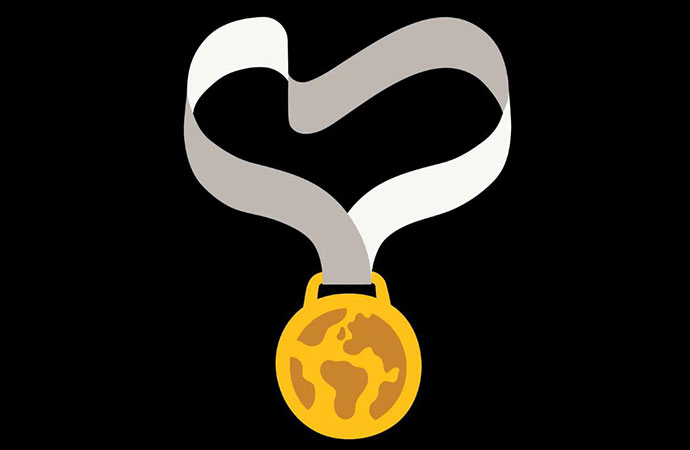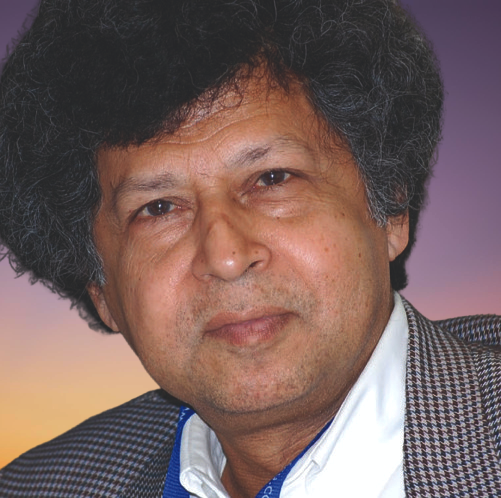Column

Bangladesh, the best country of 2024 (Courtesy: The Economist)
In the past five decades, Bangladesh has frequently made global headlines, though usually for corruption, poverty, or natural disasters. This time, however, the British weekly The Economist has recognized Bangladesh as the best country in the world-not for its challenges but for its progress. Before delving into the reasons and mechanisms behind this recognition, let us take a moment to breathe deeply and proudly say, "Yes, Bangladesh."
Not everyone thinks the designation of Bangladesh as 2024's 'best country' is a sound decision. The changes Bangladesh has experienced, particularly following Sheikh Hasina's downfall, have raised questions in some quarters about whether this truly represents progress. For those who benefited, directly or indirectly, from the previous authoritarian regime, Hasina's departure was akin to a lightning strike. Thus, their resistance to this change is hardly surprising. A professor friend in Dhaka, upon hearing of The Economist's recognition, nearly screamed, "Do they know how we are living?"
With Sheikh Hasina, from her secret refuge in India, exhorting her loyal supporters to continue fighting, many of them have found a safe playground on Facebook, where they proclaim, with tepid conviction, "Apa [Hasina] is coming back, just wait." Some even deride caretaker government leader Professor Yunus as the "Yahya of 2024."
Such reactions are predictable. Accepting defeat is difficult; acknowledging the failures behind it, even harder. Unsurprisingly, former beneficiaries of the regime may not accept Bangladesh as the best country of 2024.
Even some who welcomed the change enthusiastically continue to harbor doubts about whether enough progress has been achieved in the past three and a half months to justify this accolade. Late-night debates and talk shows echo these concerns, with major complaints about skyrocketing prices and lingering censorship fears. Journalists themselves admit to practicing "self-censorship" due to lingering fears from the past.
The Economist is aware of these limitations. However, their emphasis is not on the actual progress achieved but on the potential unlocked and the steps taken toward progress. Before selecting the best country, they analyzed the global political landscape, focusing on nations that embarked on genuine transformation in the past 12 months and avoided major setbacks.
Apart from Bangladesh, two other finalists considered by the Economist were Syria and Poland. In Syria, a dramatic revolutionary change ended 53 years of authoritarian rule, but whether the country can restore true democracy remains uncertain. There is even growing fear that Syria might fragment along ethnic and religious lines.
Poland's changes, in contrast, are unfolding within a democratic framework under Donald Tusk's Civic Coalition government. While it is reversing undemocratic measures by the previous conservative Law and Justice Party, its progress lacks the dramatic upheaval and severing of the past seen in Bangladesh or Syria.
Before the announcement, Lina Shipper, The Economist's South Asia editor, visited Bangladesh, arriving just before Hasina's downfall. She witnessed a groundswell of demand for freedom, which she saw as an expression of the people's collective aspiration. Having visited the country many times before, she was familiar with the fear-stricken populace. After Hasina's fall, she found a transformed people-unafraid. In a podcast, Lina described this new Bangladesh as "extraordinary."
The primary reason Bangladesh was named the "Best Country of 2024" is not merely the fall of authoritarian rule but the possibilities that have opened up and the country's efforts to seize them. The Economist has called Bangladesh's political transformation a revolution. History tells us that no post-revolutionary state achieves overnight peace or stability. Defeated forces rarely accept power transfers without resistance, often resorting to counter-revolutionary tactics. The examples that will resonate most with our readers are the Russian Revolution of 1917 and the Chinese Revolution of 1948.
Bangladesh's situation is not identical to historical revolutions in Russia or China, but there are parallels. In both cases, political shifts led to societal upheavals, widespread unrest, and even outright fighting. For example, the Russian Revolution led to six years of civil war, while post-revolutionary China faced prolonged unrest, extending beyond the mid-1950s. Bangladesh, it appears, has avoided such prolonged turmoil, but it must still contend with remnants of the past regime.
Patrick Fowles, The Economist's foreign editor who led the selection process, remarked in a podcast that while the future remains uncertain, the hope lies in Bangladesh's progress under Professor Yunus's leadership. The country has already begun to stabilize, with improvements in law and order and reforms in economic sectors like banking. Bangladesh is moving in the right direction.
Had wealth or happiness been the criteria, Bangladesh might not have been recognized as the "Best Country." Instead, The Economist honored the nation for its commitment to democratization and good governance. The people of Bangladesh have triumphed against an entrenched, seemingly unchangeable system that seemed immovable even weeks before August 5. But more than the power shift, the people appear willing to embrace genuine democratic changes.
As a Bangladeshi, I feel deeply appreciative of this honor bestowed on my country. But I am also keenly aware of the challenges ahead. One of the legacies of prolonged autocracy is the fragmentation of society along political, religious, and ideological lines. Knowing our fractured history, one might even call it an impossible task.
Overcoming the impossible requires courage-an indomitable spirit willing to defy death. In the July-August revolution of 2024, led by students and youth, the country proved it is up to the task. That such a resilient and brave Bangladesh has been named the "Best Country" should come as no surprise.
December 23, 2024, New York
The writer is a journalist and author based in New York.

























Leave a Comment
Recent Posts
Auspicious beginnings, but a l ...
The newly elected government of Bangladesh is now in office, and the e ...
Caught between tigers and pira ...
Over 10,000 fishermen in the Sundarbans have suspended their fishing a ...
Historic Chawk Bazar comes alive with iftar items on ..
Shaping Young Conservationists: School Conservation ..
Iran has said it has reached an understanding with t ..
New Finance Minister Amir Khosru Mahmud Chowdhury